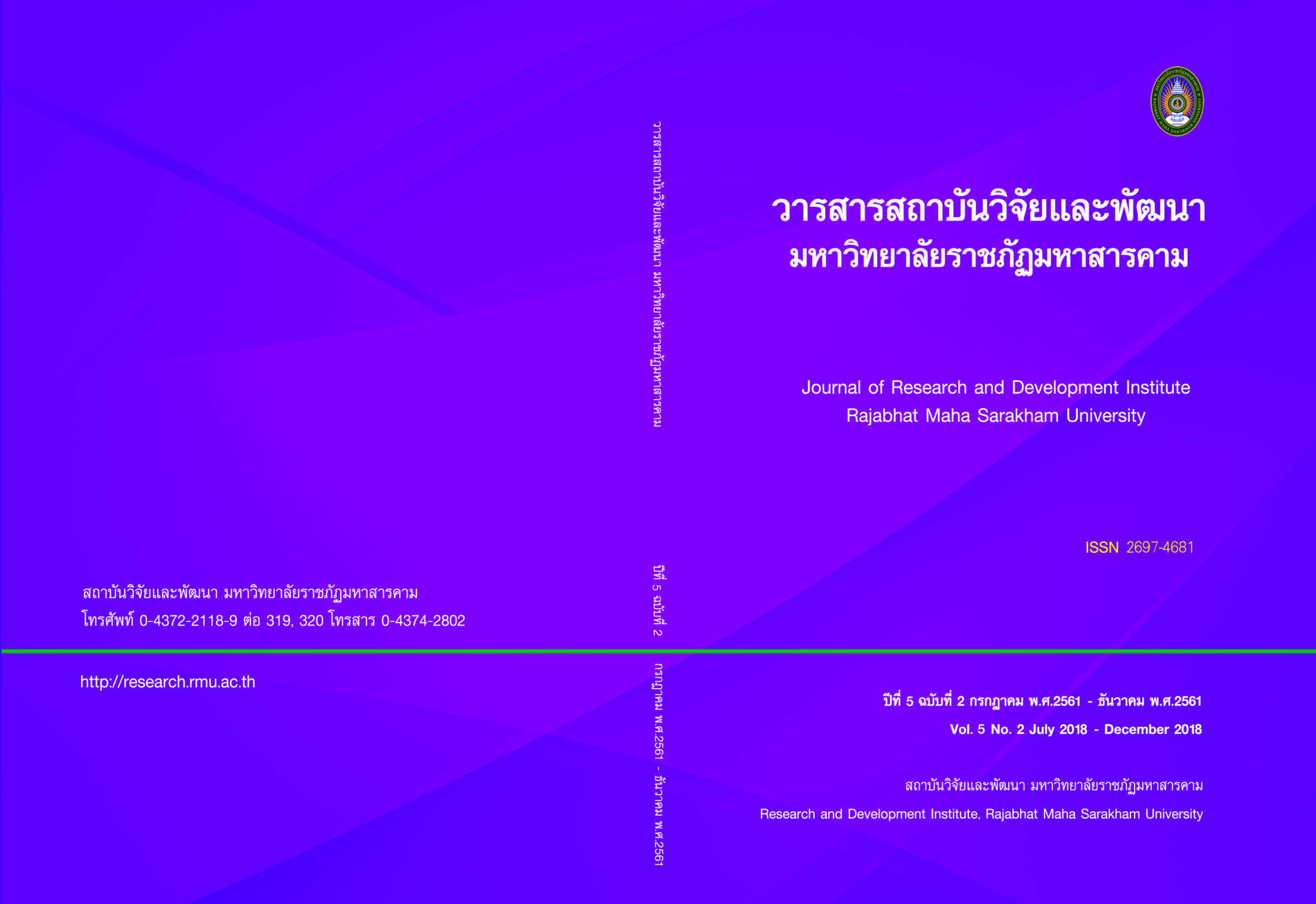Relationships between Accounting Professional Competency Improvement and Job Efficiency of Financial and Accounting Officers of Rajamangala University of Technology Isan
Keywords:
Modern Accounting Professional Competency Improvement, Job Efficiency, Financial and Accounting OfficersAbstract
This research examined the relationships between Accounting Professional Competency Improvement and Job Efficiency of Financial and Accounting Officers of Rajamangala University of Technology Isan. The sampling group was 105 Finance and Accounting Technical Officers at Rajamangala University of Technology Isan. The tool in this research was the questionnaire. The data were analyzed by multiple correlation analysis and multiple regression analysis. The results showed that : accounting professional competency improvement legal knowledge had positive relationships or effects on job efficiency in the aspects, accounting professional competency improvement financial management had positive relationships or effects on job efficiency in the aspects, accounting professional competency improvement quality of work controlling had positive relationships or effects on job efficiency in the aspects, and accounting professional competency improvement accounting knowledge had positive relationships or effects on job efficiency in the aspects. Therefore, professional accountants should participate in professional accounting training program and develop themselves to gain more professional accounting skills, knowledge, and attributes. The findings would be applied for self-development to perform efficiently. An organization would recognize their knowledge and competency and feel more confident in professional accountants when lead to their performance improvement.
References
Black, K. (2006). Business Statistics For Contemporary Ecision Making. USA : John Wiley and Sons.
J.H. Wesseling, J.C.M. Farla, M.P. Hekkert. (2015). “Exploring car manufacturers’ responses to technology-forcing regulation : the case of California’s ZEV mandate” [Online] http : //joeriwesseling.com/wpcontent/uploads/2015/08/Wesseling-et-al.-WP-in-press-at-EIST-2015.pdf
Natthacha Wattanawilai and Juthamon Sitthiphonwanitchakul . (2012). “The potential development of Thai accounting profession on economic liberalization”. Executive Journal, 32 (3) (Julys-September 2012), page. 16 - 25 [In Thai]
Nunnally, J. (1978). Psychometric Theory. New York : McGraw-Hill. Rajamangala University of Technology Isan. (2016). University Information. [Online] http : //www.rmuti.ac.th/2015/th/about-rmuti/information [3 May 2016]. [In Thai]
Sayfon Urai, Kanyanat Rattanaphaphtham, Salakjit Ninlaphay. (2015). Effects of audit competency on practice efficiency of certified public accountants in Thailand. Journal of Humanities and Social Sciences Mahasarakham University, 34 (4) : July-August 2015, 169-179. [In Thai].
Sujittra Prakrongsee, Khajit Konthong and Pailin Nilniyom. (2014). “Relationships between Modern Accounting Competency and Professional Success of Bookkeepers in the Upper Northeast”. Journal of Accountancy and Management, 6 (2) : April-June. [In Thai]
Supaporn Bisalbutra. (2007). Job analysis. 7th edition. Bangkok : Wirat Edutainment. [In Thai]
Thammasat University. (2016). Manual of Functional Competency : Finance and Accounting Division, Position in Finance and Accounting Scholars, [Online] http : //hrfs.person.tu.ac.th/hrtuweb/. [10 April 2016]. [In Thai]
Downloads
Published
How to Cite
Issue
Section
License
Articles that are published are copyrighted by the authors of the articles







